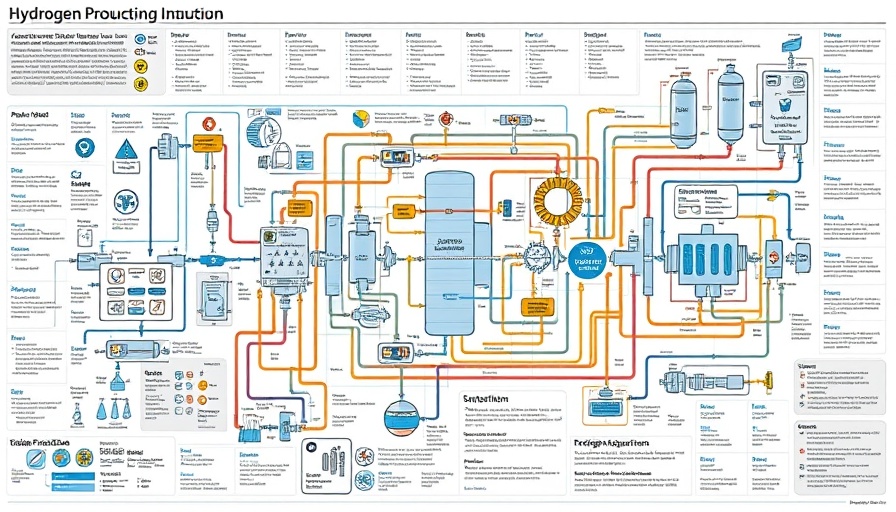
Revolutionizing Hydrogen Production: A Sustainable Future
As global concerns over climate change intensify, the quest for sustainable and clean energy solutions has become more urgent than ever. Hydrogen has emerged as a key player in this energy transition, providing a versatile and environmentally friendly alternative to fossil fuels. Recent advancements in hydrogen production techniques are paving the way for a cleaner and more efficient energy ecosystem.
Addressing the Tar Dilemma in Gasification
The latest research by scientists at Kaunas University of Technology (KTU) and the Lithuanian Energy Institute (LEI) tackles one long-standing issue in hydrogen production: the presence of tar in conventional gasification processes. Traditional methods often result in the production of low-purity hydrogen due to tar contamination, leading to inefficiencies and potential damage to equipment. The Lithuanian team's innovative two-step conversion system offers a solution, utilizing an updraft gasifier followed by a catalytic reforming reactor to eliminate tar and improve hydrogen purity significantly.
How It Works: A Step Towards Cleaner Hydrogen
The new hydrogen production method begins with gasification, where waste is heated under controlled steam and oxygen conditions. This process generates syngas (synthetic gas), which contains hydrogen but also introduces tar as a by-product. By passing the syngas through catalysts in the reforming reactor, the team has successfully broken down the tar, enhancing the overall hydrogen content up to 60% volume. This advancement represents a substantial leap in transforming waste materials into high-purity hydrogen while minimizing environmental impact.
Broader Implications for the Hydrogen Economy
Production innovations like this are crucial as hydrogen systems are projected to play a significant role in diminishing carbon footprints across various sectors. A comprehensive review published in Energy outlines how hydrogen could potentially reduce CO2 emissions by millions of tons annually across industries such as transportation, power generation, and industrial manufacturing. By streamlining hydrogen production processes, we not only make hydrogen more accessible but also move closer to a sustainable energy future.
Investment in Hydrogen Technologies
Efforts to enhance hydrogen production capabilities come at a critical time when environmental regulations and carbon pricing are poised to transform the energy landscape. The increasing collaboration between public and private sectors in hydrogen technology development, supported by government policies and financial incentives, promises to bring down production costs. According to recent analyses, as technologies advance and production scales up, costs associated with green hydrogen could drop significantly by 2030, making it a competitive alternative to fossil fuels.
Call to Action: Embrace Sustainable Energy Solutions
The breakthrough achieved by scientists at KTU highlights the importance of innovation in the sustainable energy sector. It is imperative for governments, industries, and individuals to support the transition toward hydrogen energy systems by investing in R&D and providing necessary infrastructure. The evolution of hydrogen production technologies is not just an opportunity for cleaner energy; it signifies a pivotal moment in our fight against climate change. Embrace sustainable energy solutions for a cleaner, greener future!
 Add Row
Add Row  Add
Add 




Write A Comment